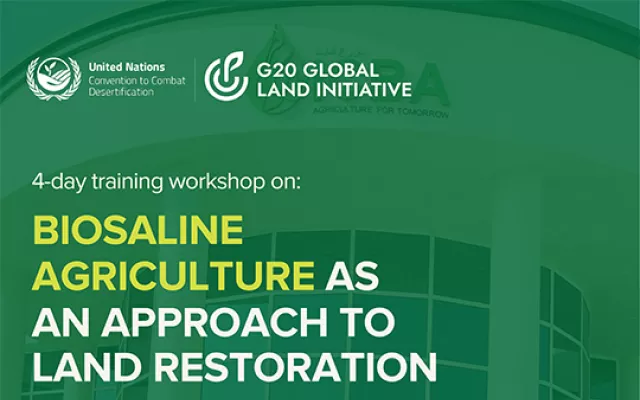Land Degradation and Soil Management in Africa
In Africa, two-thirds of the region’s people depend on agriculture for their livelihoods. Despite the great potential for irrigation, estimated by FAO to be about 27 million hectares, only one-sixth has been developed. As a consequence, 97% of agricultural land is rainfed and water scarcity and degradation due to soil nutrient depletion and salinity are major challenges for smallholder farmers, especially in the drylands. Worldwide, over 24 billion tons of fertile soils are lost on croplands to erosion every year (mostly in Africa). Global data shows that 33% of soils are degraded due to a diversity of ailments, whereas 20% of irrigated lands are salinized to various degrees. In addition, the impact of climate change is another constraint causing a major concern.
Farmers in dry regions face a number of natural resources and soil- related challenges which hamper their farm productivity. Some of the challenges that these smallholder farmers face are the lack of soil fertility information and adoption of land management practices. In rainfed agriculture, water erosion has degraded the soils and depleted the nutrients leading to increased cost of agricultural production; irrigated agriculture has increased secondary salinization, and the question is now what small-scale farmers can do to restore soil health over the long term, considering the soils are the basis for food production. It is therefore imperative to enhance the restoration of degraded agricultural soils, and promote “sustainable production intensification” through increasing soil fertility, water use efficiency, reclaiming salt-affected and eroded soils, ensuring sustainable use of inputs and recycling of agricultural by-products.
This training is designed to address land degradation and soil management issues in Africa and to present various options to either reverse or reduce them to intensify agriculture. The participants of this training will be oriented to the importance of healthy soils for ecosystem services and identification of diagnostics-based constraints to farm soil health. The training will improve participants’ knowledge about the best management practices at the farm level to combat soil desertification and soil degradation. The participants will also get information about conservation agriculture, integrated soil fertility management and integrated soil reclamation. The participants will learn through tailored contents bringing science from laboratory to fields and vice versa. In addition, the training will provide an opportunity to exchange ideas on a range of topics and network with other participants.
- Islamic Development Bank (IDB), Saudi Arabia
- International Center for Biosaline Agriculture (ICBA), United Arab Emirates









